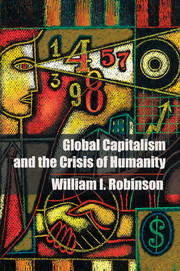3 - Beyond the Theory of Imperialism
Published online by Cambridge University Press: 05 August 2014
Summary
As in the case of democracy, which is used in a positive sense to describe, from particular positions, radically different and consciously opposed political systems, imperialism, like any word which refers to fundamental social and political conflicts, cannot be reduced, semantically, to a single proper meaning. Its important historical and contemporary variations of meanings point to real processes which have to be studied in their own terms.
Raymond Williams, KeywordsTheories of a “new imperialism” proliferated in the years following the September 2001 attack on the World Trade Towers and the Pentagon and the subsequent U.S. invasions of Afghanistan and Iraq. These theories argued that the United States set about to renew a U.S. empire in order to offset a decline in its hegemony amid heightened inter-imperialist rivalry. So popular were new imperialism theories that they came to be seen as common sense; critics were seen as heretics or nut cases, and alternative explanations nearly disappeared from the intellectual and political radar. Yet these theories rested on a crustaceous bed of assumptions that must be peeled back if we are to get at the root of twenty-first century global social and political dynamics. The lynchpin of “new imperialism” theories is the assumption that world capitalism in the twenty-first century is made up of “domestic capitals” and distinct national economies that interact with one another and a concomitant realist analysis of world politics as driven by the pursuit by governments of their “national interest.” Realism of this sort sees each national economy as a billiard ball banging back and forth against the others. This billiard image is then applied to explain global political dynamics in terms of nation-states as discrete interacting units (the interstate system). The realist paradigm that dominated the study of international relations during the post–World War II period lost much of its luster as globalization unfolded in the 1980s and 1990s, but then made a powerful comeback following the events of the 2001 and renewed U.S. interventionism.
- Type
- Chapter
- Information
- Global Capitalism and the Crisis of Humanity , pp. 99 - 127Publisher: Cambridge University PressPrint publication year: 2014



